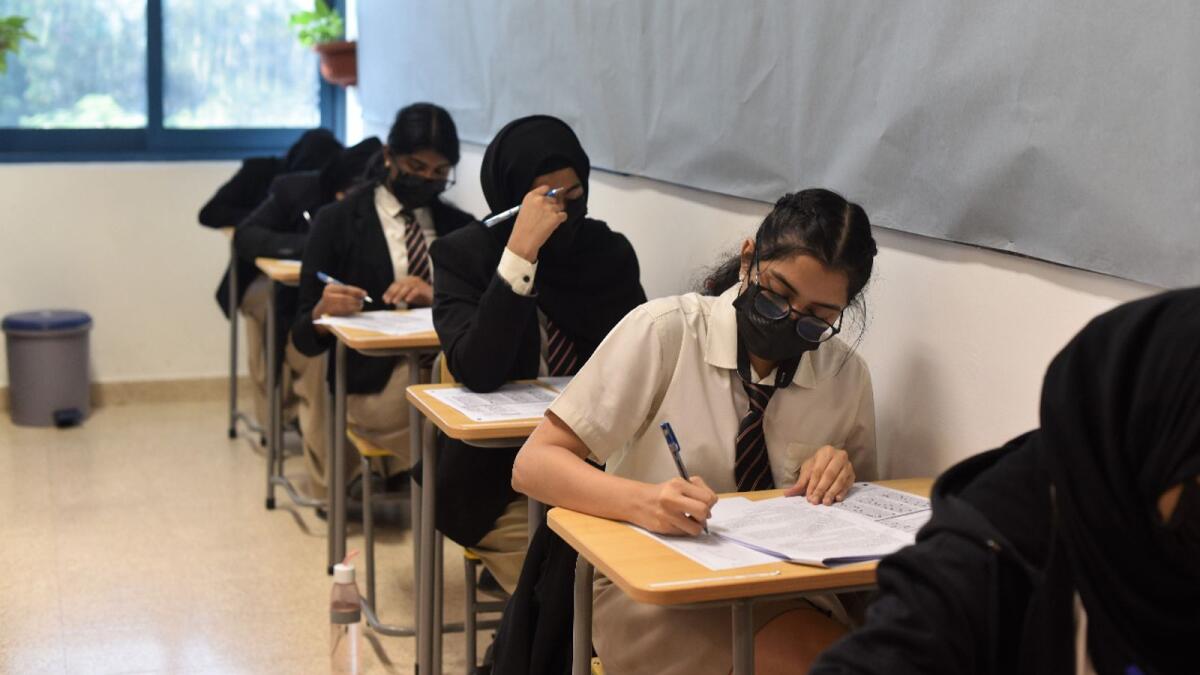Private school parents in the UAE are hopeful for a similar transition to skills-based assessments following the announcement by the government to shift away from traditional exams for some public school students in the second semester. They believe that this change could greatly benefit their children by reducing stress and creating a more engaging learning environment. Hessa Mohamed, a resident of Abu Dhabi and a mother of two students in a private school, is excited about the possibility of a semester without traditional exams for her children. She finds this change to be a significant relief for her family as it allows her children to focus more on learning rather than being pressured to study for exams. Another parent, Emily Diego, also supports the transition, highlighting her son’s struggles with exam-related stress and anxiety. Muzna Ali Al Zyoudi, a mother of four, including some who study in private schools, expressed approval of the new approach and hopes that it will be implemented in private schools in the future.
Educational experts from private schools in the UAE view the shift towards skills-based evaluations positively. Amel Dali-Bey, Deputy Head of Primary at Nord Anglia Dubai, believes that this transition can enhance student engagement by making learning more relevant to real-world applications. However, she also acknowledges potential concerns such as anxiety among students and parents about the absence of formal grades and international benchmarks. Rania Hussein, Deputy Head of School at SISD Swiss International School Dubai, emphasizes that this shift aligns closely with practices in International Baccalaureate programs, preparing students for complex real-world challenges. Hussein also points out that private schools might be slow to adopt these changes unless examination boards update their criteria to align with skills-based evaluations.
Dr. Ayman Elnaggar, Vice Provost for Education at the University of Birmingham Dubai, sees the move towards skills-based evaluations as a step towards deeper, more engaged learning. He believes that focusing on practical application and real-world skills can help students develop critical thinking and problem-solving abilities. However, he acknowledges the challenges that this transition may entail, including significant changes in curriculum design and ensuring consistent evaluation. Teachers and staff will need substantial professional development to adapt effectively to this new evaluation method. The transition promises benefits like better workforce preparation and personalized learning but requires ongoing support and resources for successful implementation.
Parents like Hessa Mohamed, Emily Diego, and Muzna Ali Al Zyoudi are hopeful that private schools in the UAE will also adopt skills-based assessments in the future. They believe that this approach can benefit students by reducing stress, increasing engagement, and making learning more relevant to real-world applications. Educational experts from private schools also see the value in this transition, emphasizing its potential to enhance student engagement and prepare them for future success. While there may be challenges and concerns associated with the shift towards skills-based evaluations, the overall consensus is that this new approach holds promise for improving the quality of education in private schools in the UAE.










